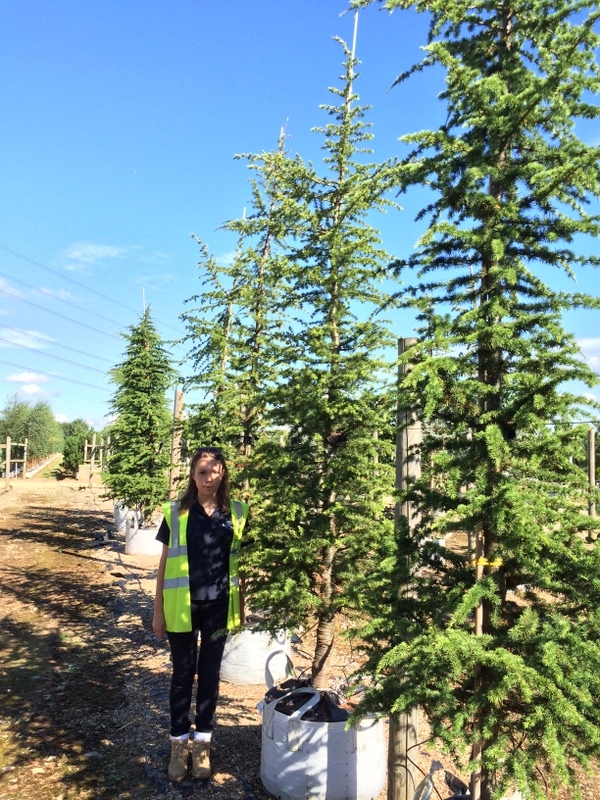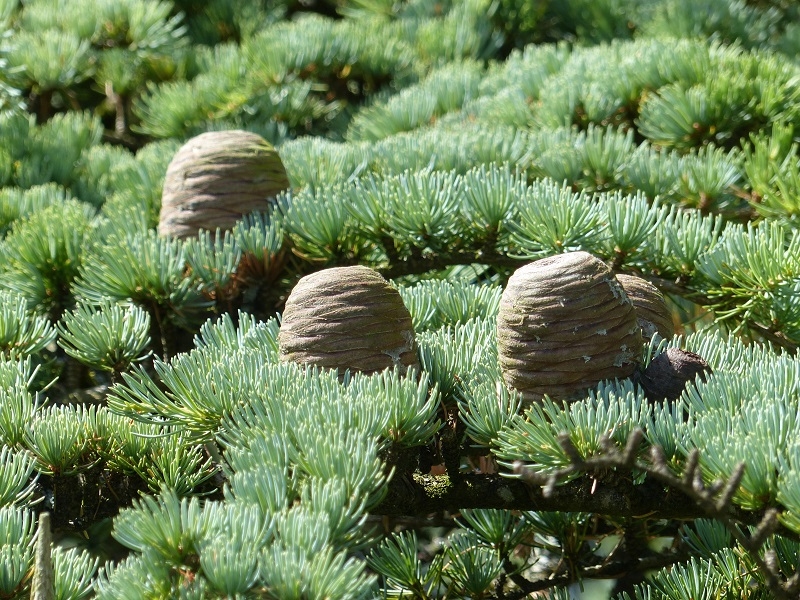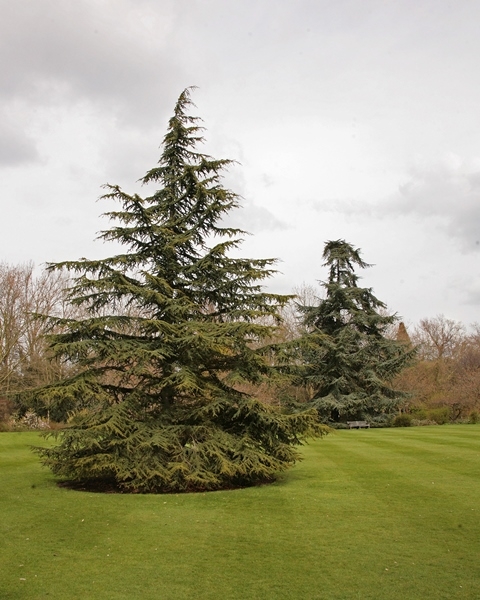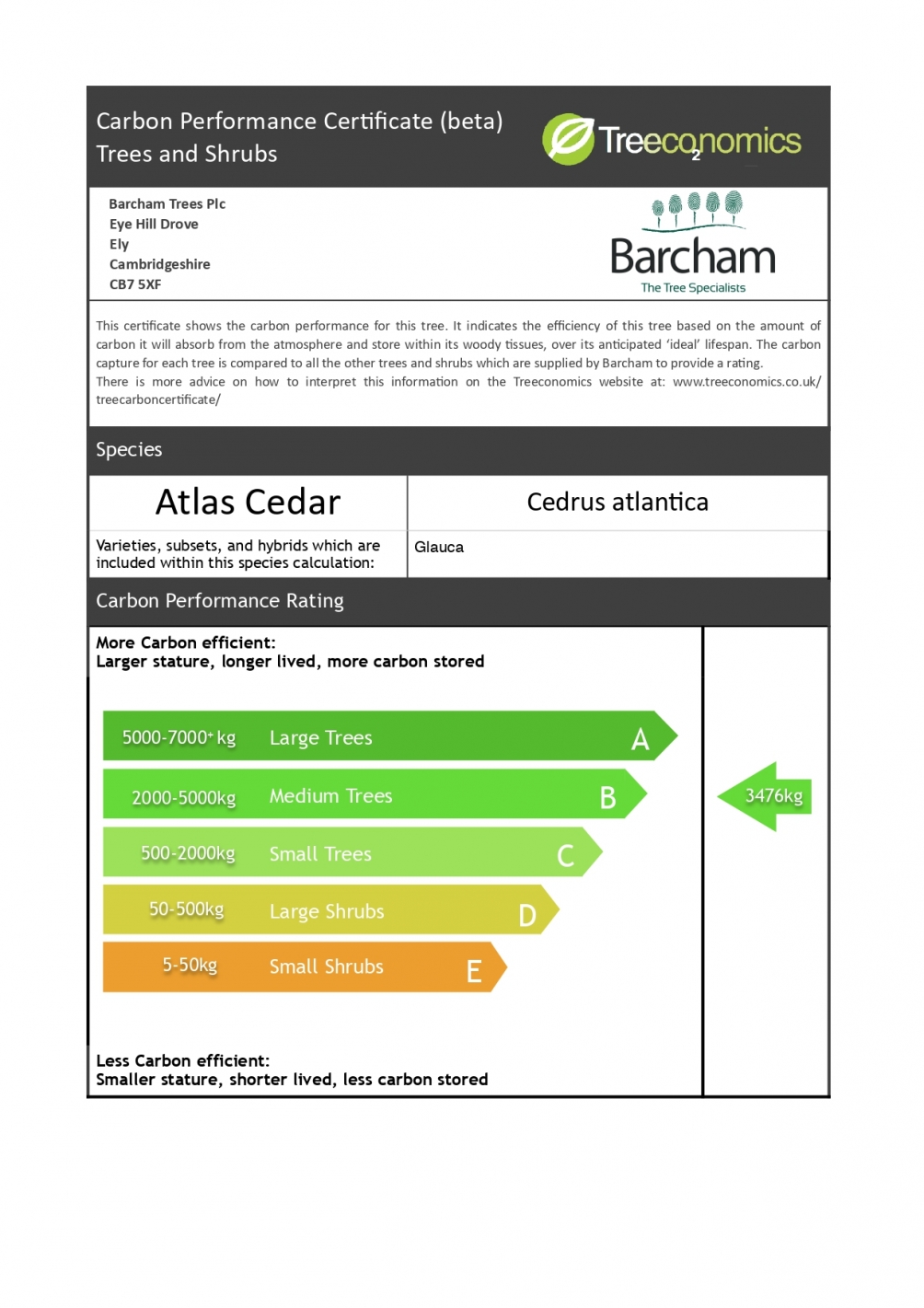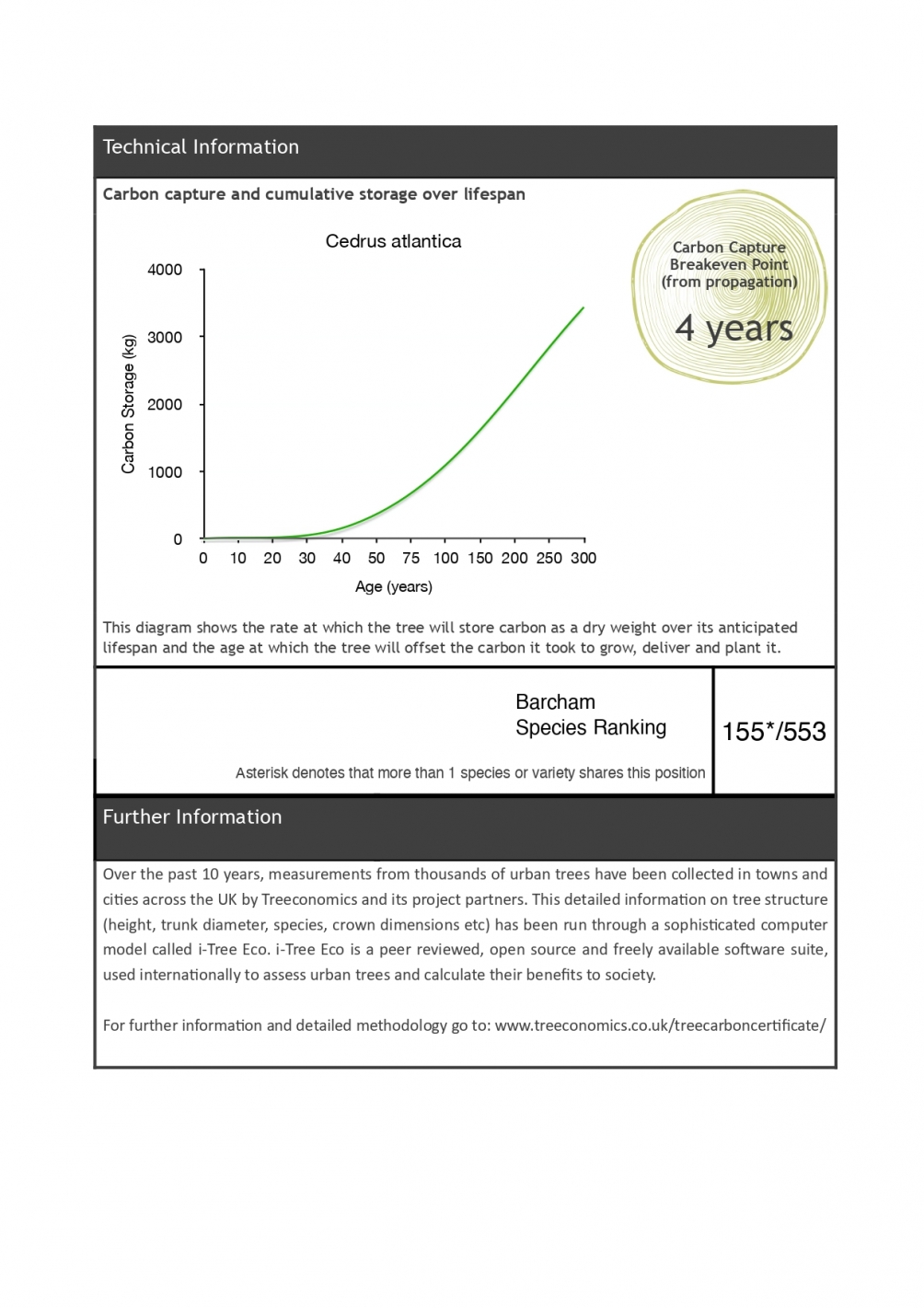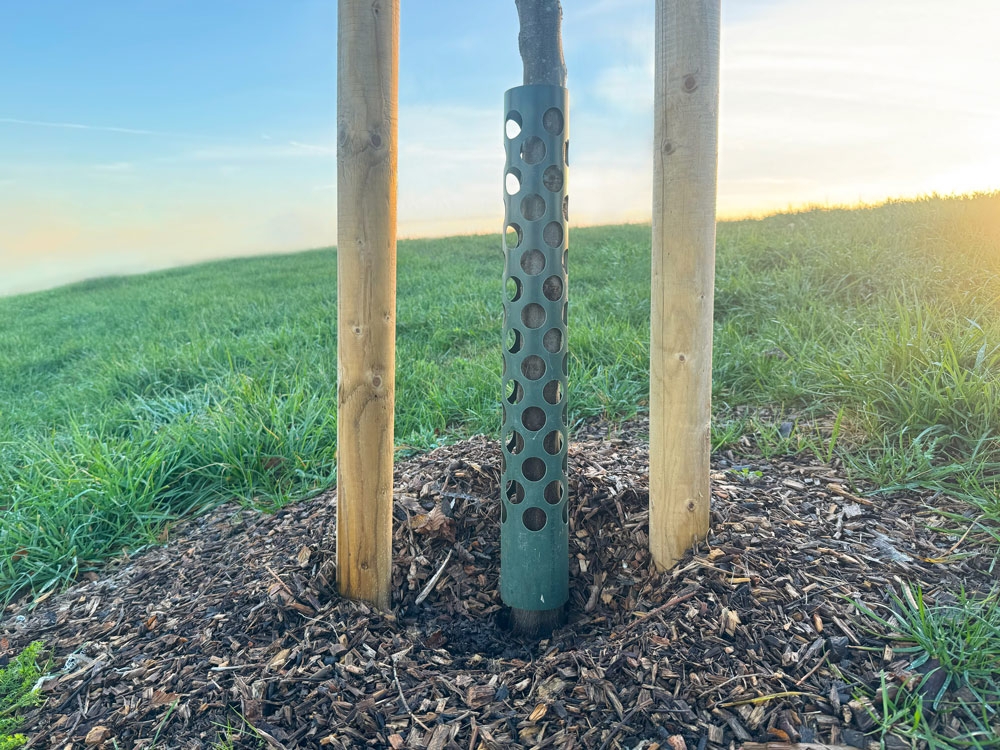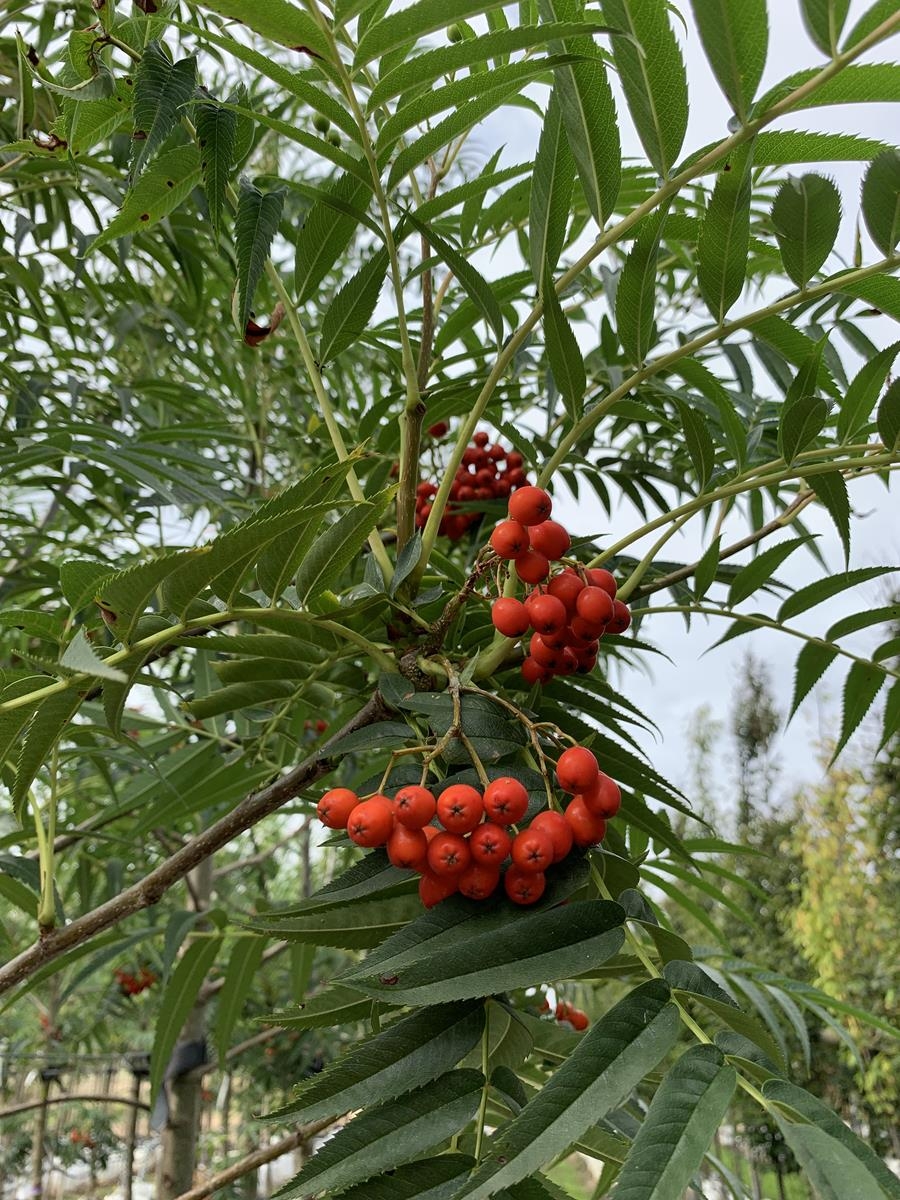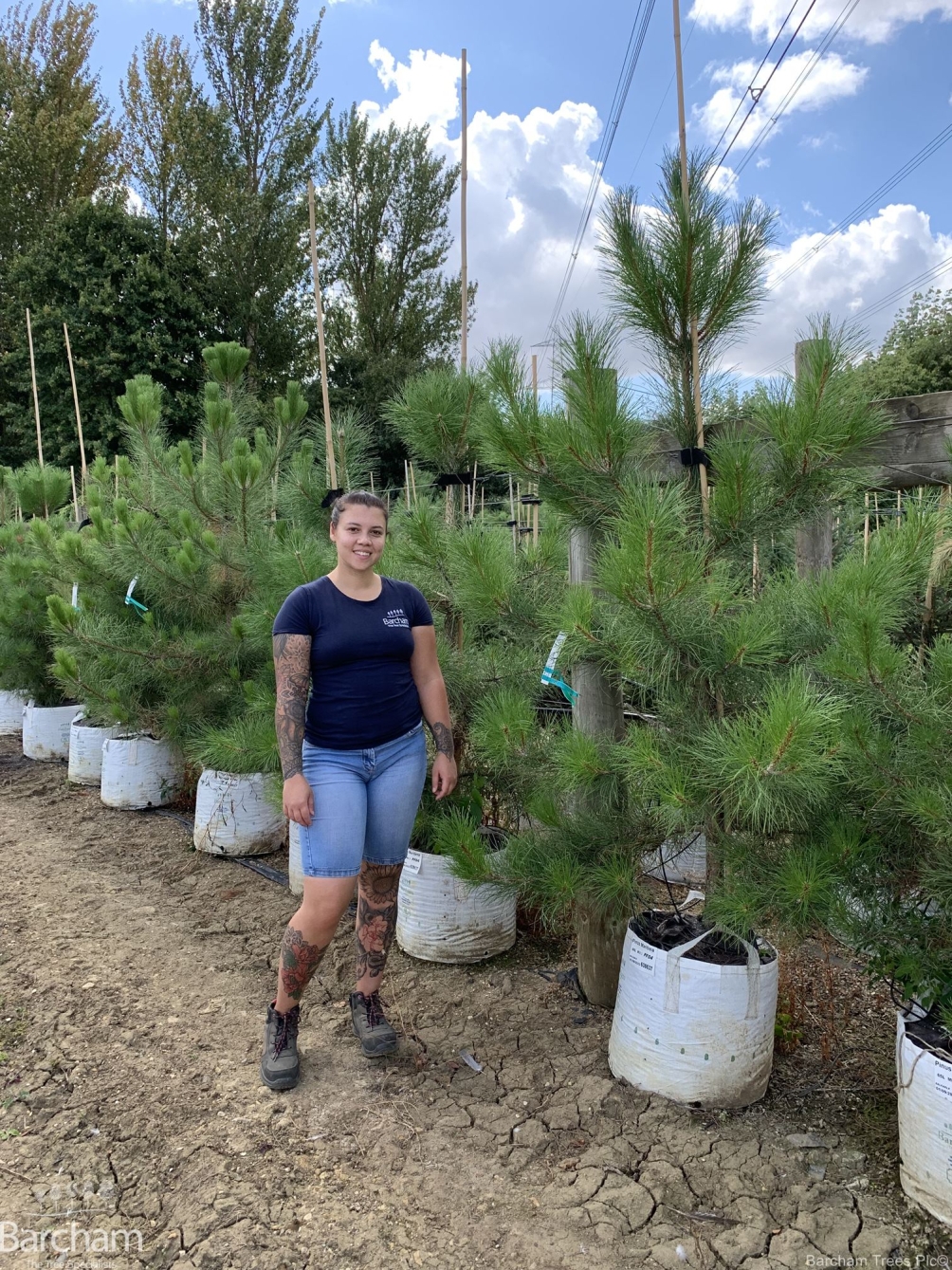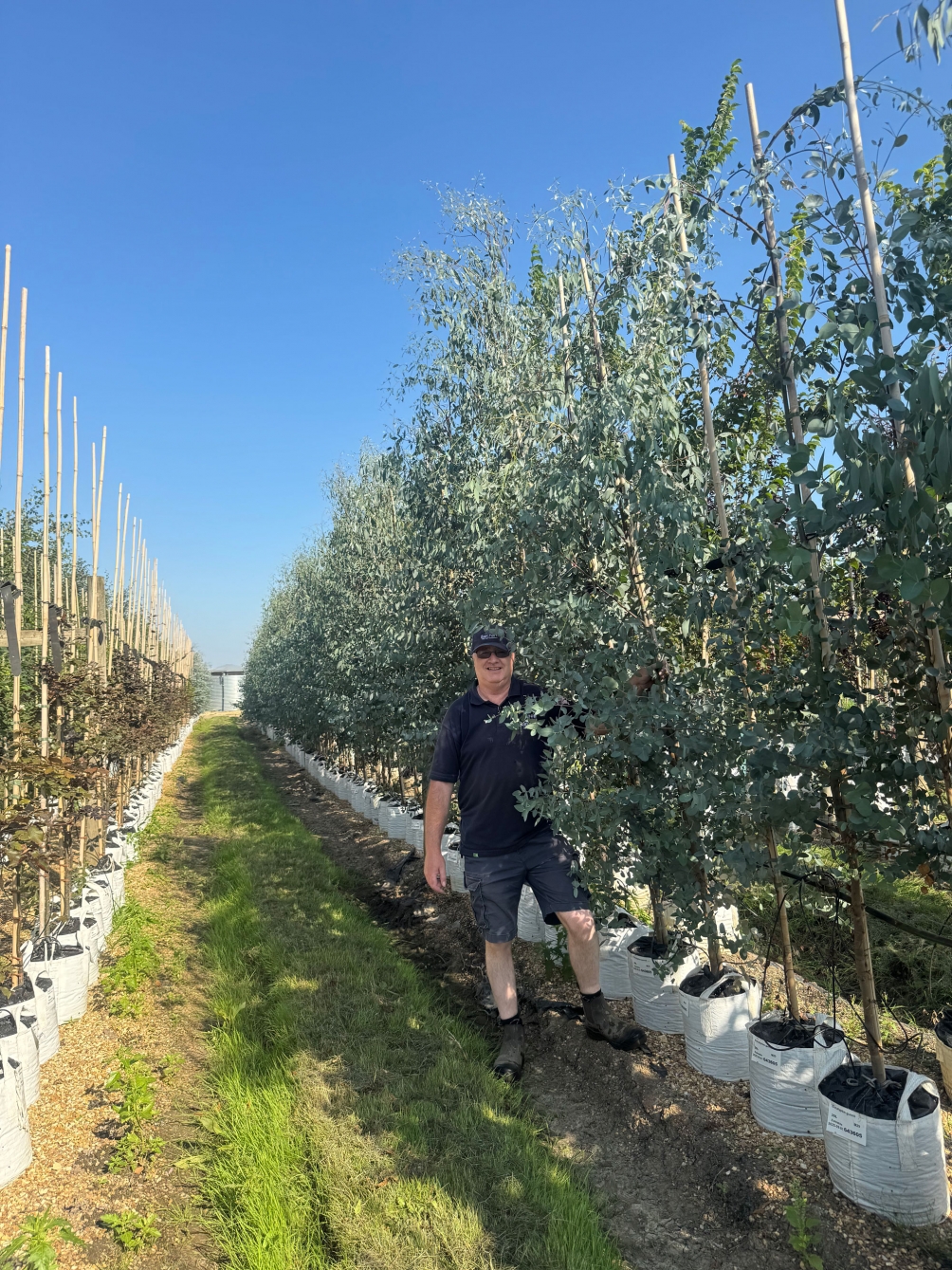Cedrus atlantica
Atlas Cedar
It thrives on most soils but is better equipped to withstand urban pollution compared to Cedrus libani or deodara.
Read more about this productProduct details
Introduced in the 1840s Atlas Cedars make most imposing and stately subjects – perfect for large estates.
To the untrained eye it is too similar to Cedrus libani to call and the Dutch try and clear the trade of confusion by listing it as Cedrus libani Atlantica as a catchall. We list it separately for the sake of purity!
This large evergreen tree from the Atlas Mountains of Algeria and Morocco forms an impressive structure of wide horizontal branches when mature.
It grows rapidly in its early years and is regarded by many as a classical parkland tree.
It thrives on most soils but is better equipped to withstand urban pollution compared to Cedrus libani or deodara.
Cones 5-7 cm in length are produced along its numerous branches.
Very difficult to transplant as bare rooted or root balled, our containers solve this problem and facilitate good establishment
We always think of this superb tree as an individual specimen but in their native habitat they can form imposing forests on mountainsides at an altitude of 1000 metres to 2200 metres. These forests still sustain the endangered Barbary Macaque
Mature height: 20m+
Mature spread: 7-12m
To the untrained eye it is too similar to Cedrus libani to call and the Dutch try and clear the trade of confusion by listing it as Cedrus libani Atlantica as a catchall. We list it separately for the sake of purity!
This large evergreen tree from the Atlas Mountains of Algeria and Morocco forms an impressive structure of wide horizontal branches when mature.
It grows rapidly in its early years and is regarded by many as a classical parkland tree.
It thrives on most soils but is better equipped to withstand urban pollution compared to Cedrus libani or deodara.
Cones 5-7 cm in length are produced along its numerous branches.
Very difficult to transplant as bare rooted or root balled, our containers solve this problem and facilitate good establishment
We always think of this superb tree as an individual specimen but in their native habitat they can form imposing forests on mountainsides at an altitude of 1000 metres to 2200 metres. These forests still sustain the endangered Barbary Macaque
Mature height: 20m+
Mature spread: 7-12m
Tree Specifications
Common names
Atlas Cedar
Mature size
Tree type
Soil type
Shape
Tree features
Growth rate
Tolerances
Seasons of interest
Tree uses


